The big Broughty Ferry beach brawl happened in the hottest spell of the year so far, and this isn’t just a coincidence.
As temperatures rise, so do tempers, and people become more aggressive.
There are some obvious reasons why heat should make people angrier and more aggressive.
When it gets hot, crowds of people gather outside, and the consumption of alcohol rises.
Most of the notorious riots of recent years happened in the summer: the 2011 London riots, the 1981 Brixton riots, which spread around the UK, and the Watts riot in Los Angeles in 1965.
But it isn’t just rioting that increases with the heat.
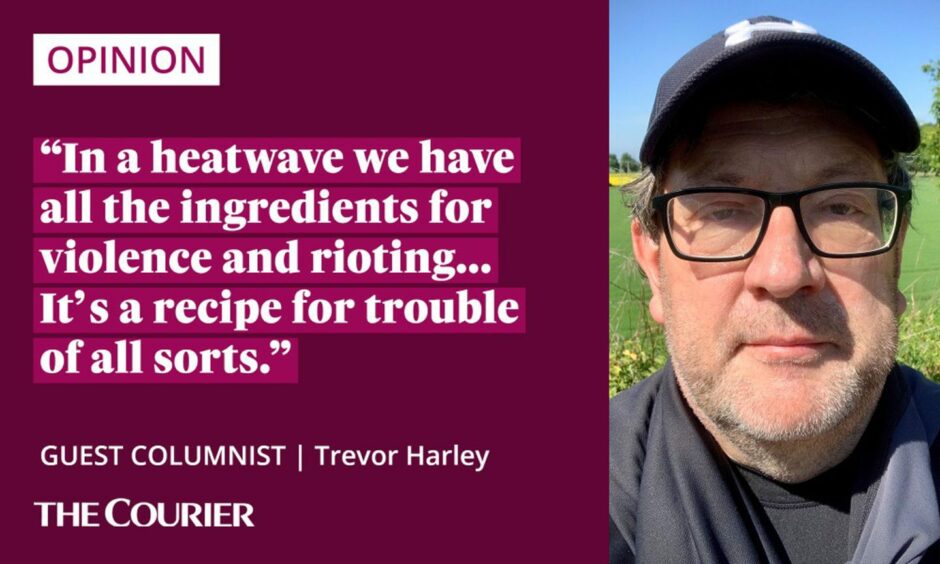 Violent crime of all sorts goes up, including murder, assault, and robbery, as well as sexual assault and domestic violence.
Violent crime of all sorts goes up, including murder, assault, and robbery, as well as sexual assault and domestic violence.
The effects are large.
Our optimum temperature is around 21ºC or so, and violent crime increases by 5% on “hot days” (between 23 and 31ºC). and 10% or more on days over 31ºC.
And there is much more to it than alcohol.
Heatwaves and humans – a recipe for trouble
We know from laboratory studies that increasing the temperature makes people feel angrier (and, similarly, cooler temperatures help us to chill out).
Like much about human behaviour, the causes aren’t perfectly understood.
But heat affects chemicals in the brain and body responsible for controlling emotion and aggression as well as affecting our ability to control our impulses.
Hot weather makes us feel stressed, which releases cortisol, the stress hormone, which puts us into a “fight or flight” mode. And clearly in a beach brawl the emphasis is very much on fight.
Unless we take precautions, heat causes dehydration, which is made worse by alcohol consumption. And dehydration can make us feel tense and anxious.
Some people will be made irritable by sunburn.
And in a prolonged heatwave our sleep is disturbed, which has several negative consequences for physical and mental health.
Recent heatwaves have tended to be associated with high humidity, which just makes us feel even worse.
All of these things do more than make us lose control.
DAVE LORD: Don’t be surprised when the Broughty Ferry beach brawl happens again https://t.co/2gYMi23jVk pic.twitter.com/NcOC6hM1FB
— The Courier (Dundee) (@courier_dundee) July 12, 2022
Heat affects our ability to concentrate, and impairs our memory and our ability to reason and make judgements.
So in a heatwave we have all the ingredients for violence and rioting: angry people gathered in crowds, feeling tense and agitated, becoming aggressive, less able to control their impulses, and with their ability to think about the consequences of their actions limited, often all fuelled by copious amounts of alcohol.
It’s a recipe for trouble of all sorts.
Where warmth brings out the worst in people
We also find that rioting and political and non-political violence are more frequent in hot countries.
We even observe that there is more violence in the hotter cities than the cooler ones within the same country, as studies on the USA have shown.
Of course, temperature isn’t the only thing that matters. But these studies support the view that higher temperatures lead to more violence.
And hot weather doesn’t just increase violence to others.
Self-harm goes up as well, and hot weather seems to make at least some people feel more depressed.
Several studies have shown the suicide rate increases significantly in heatwaves – even in countries that are already hot, such as Turkey and Mexico.
The heat even makes people less likely to help others, probably because they feel more fatigued, irritable, and generally have lower mood.
One study found that in the 2010 Moscow heatwave shop assistants were significantly less likely to help shoppers than when the weather was cooler.
Another side-effect of climate change
We can adapt to heatwaves with some common sense.
Stay hydrated at all costs. Stay out of the sun, particularly when the sun is high in the sky.
Make use of air-conditioned spaces where possible. Try to avoid physical exertion in the hottest part of the day, and try not to drink too much alcohol.
Authorities and the police should also plan in the expectation that heatwaves will cause trouble.
On Sunday the weather station in my garden recorded 28.2ºC, which is unusual here.
It’s the seventh-highest temperature I’ve observed in the last 25 years. But I expect to record more of these very hot days.
With climate change, temperatures will increase in many areas, and heatwaves will become more frequent.
Sadly, we can expect to see more rioting, more violent crime on hot summer nights, an increase in suicide, and a significant deterioration in mental health.
And, of course, more beach brawls.
Trevor Harley is Emeritus Professor of Psychology at Dundee University and the author of Psychology of Weather, which describes how the weather and climate affect us. He has a weather station in his garden, and has obsessively kept weather records since 1988.
REBECCA BAIRD: Why we should all be celebrating the ‘biggest skiving week of the year’
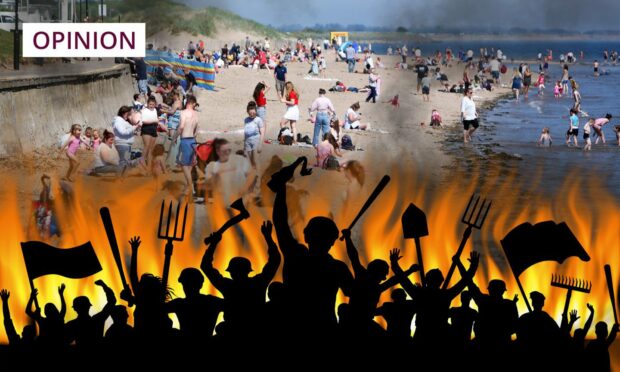
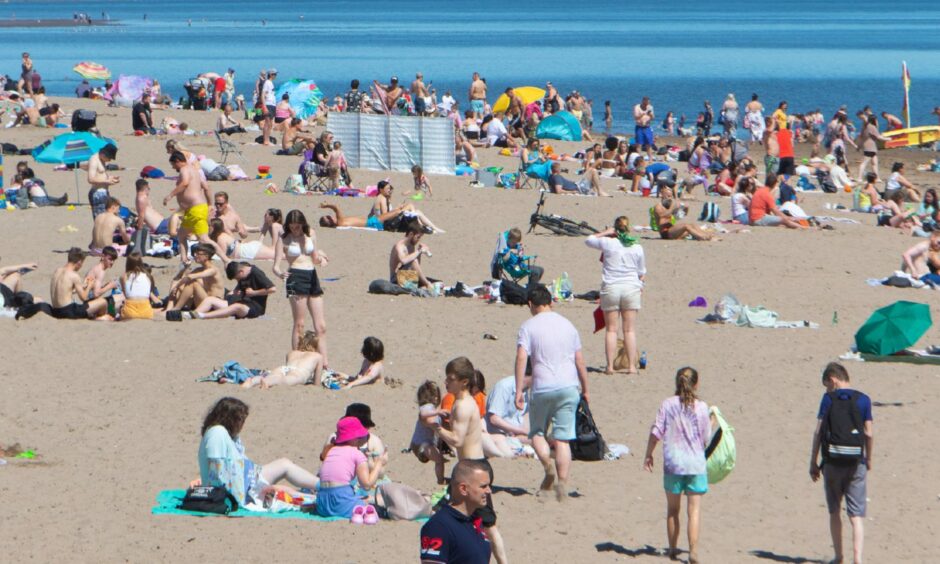
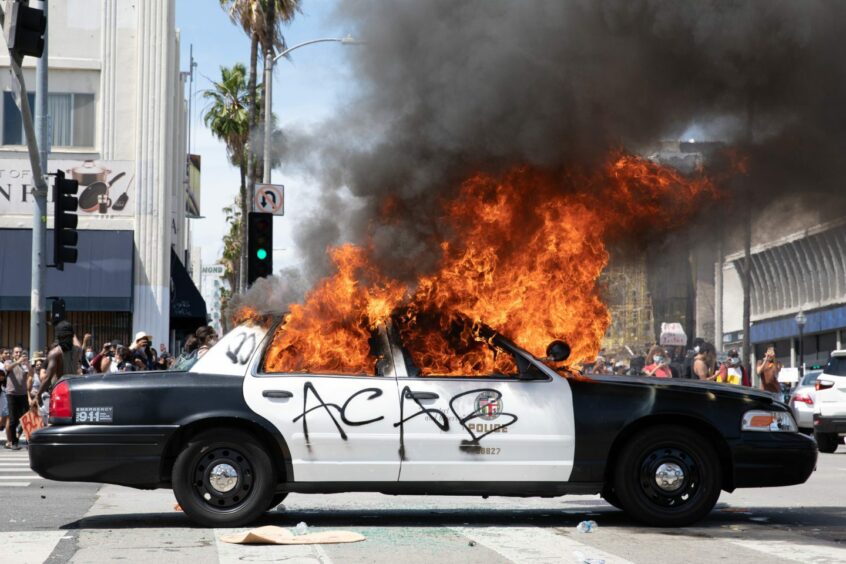

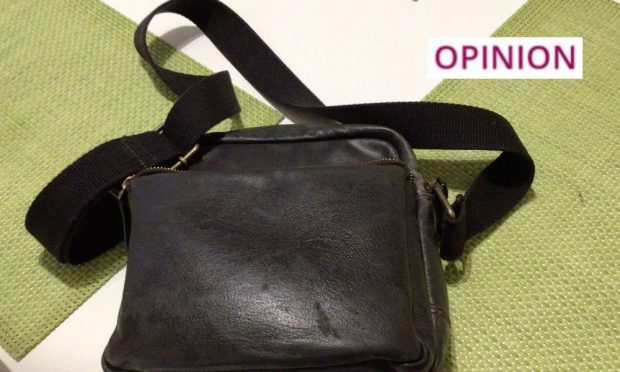





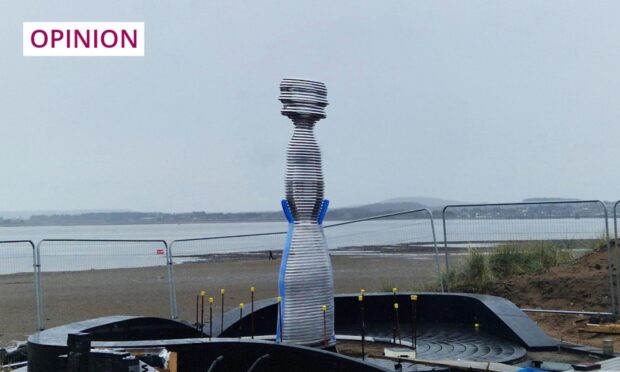


Conversation